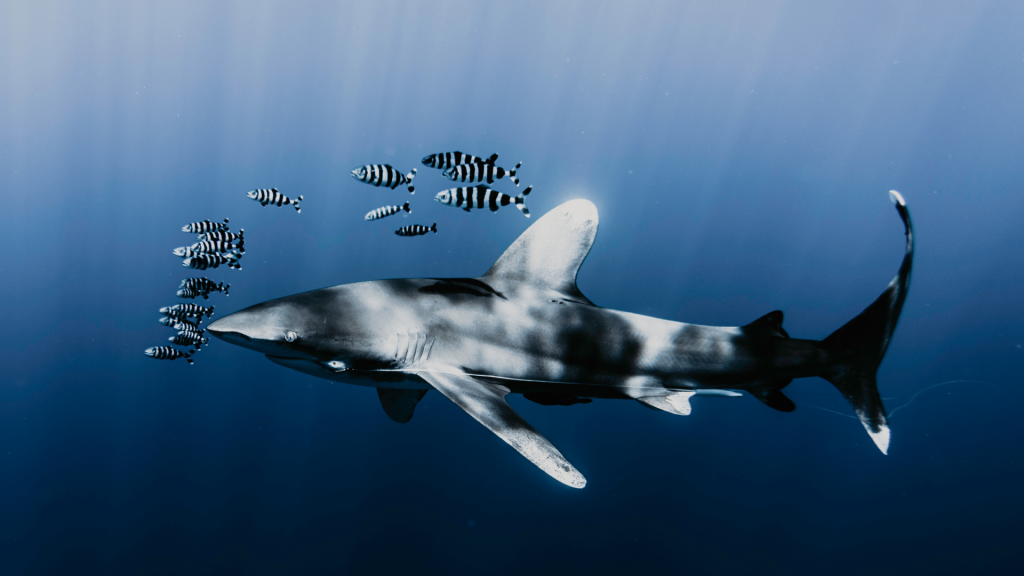From 6 – 13th June, the Blue Pangolin Consulting team attended two critical events for the Ocean agenda – the Blue Economy and Finance Forum (BEFF) in Monaco (7–8 June) and the Third United Nations Ocean Conference (UNOC3) in Nice (9–13 June). Represented by Francis Staub, Tom Dallison, and Margaux Monfared, the team contributed technical expertise, policy guidance, and global leadership across a series of high-level events.
As the Designated Administrative Representative to the International Coral Reef Initiative (ICRI) — a partnership of 102 members including 45 countries representing over 75% of the world’s coral reefs — Blue Pangolin Consulting further supported and delivered several landmark moments and continued to elevate coral reefs in the international agenda.
Coral Reefs in the Spotlight: the #ForCoral Pavilion
From 2–13 June, Blue Pangolin Consulting, as the ICRI Secretariat, led the staffing and animation of the #ForCoral Pavilion, which became a vibrant hub for collaboration and action, uniting leaders, scientists, youth, artists, investors, community voices, and policymakers around one urgent mission: to protect and restore the world’s coral reefs. Throughout the two weeks, the Pavilion, supported by the General Organisation for the COnservation of Coral Reefs and Turtles in the Red Sea (SHAMS), Bloomberg Ocean Initiative, and the Global Fund for Coral Reefs, hosted over 40 sessions and panels, screened more than 10 films, and welcomed over 100 distinguished speakers, including several ministers and thousands of visitors. Brazil also launched its National Strategy for the Conservation and Sustainable Use of Coral Reefs (ProCoral), a milestone in the country’s efforts to protect these ecosystems. From immersive experiences and high-level dialogues to a special visit from HRH Princess Eugenie of York, every moment underscored one clear message: Coral reefs matter—and we must act now.
Blue Pangolin Consulting continued to engage with distinguished guests, ministers, peers and civil society to advocate for coral reefs, calling for the need to implement integrated management strategies (building on the “Key Policy Asks for Coral Reefs” released by ICRI in April 2025).
Tom is interviewed at the Third UN Ocean Conference on the role of the International Coral Reef Initiative at UNOC, the importance of coral reefs, and why we need urgent action.

Launch of the GCRMN Pacific Report and High-Level Events
To celebrate the launch of the Status and Trends of Coral Reefs of the Pacific: 1980 – 2023, the most comprehensive regional coral reef assessment ever undertaken for the Pacific, several events were organised:
- On 11 June, “Coral Reefs and People – Honouring Culture and Advancing Conservation Action for the Pacific Islands” featured powerful contributions from government ministers, regional organisations, and community leaders who spoke to the deep cultural, economic, and spiritual ties between Pacific peoples and coral reefs.
- On 12 June, “Status and Trends of Coral Reefs in the Pacific: 2024 – A Call to Action for Pacific Islands and People” brought together regional scientists, policy-makers, and high-level representatives from Samoa, Niue, Kiribati, French Polynesia, Palau, and the Marshall Islands, alongside SPREP and SPC. The tone across both events was clear: urgent, collaborative, and solutions-driven — affirming the Pacific’s leadership in coral reef protection and calling for bold global support to meet the scale of the challenge.
The report draws on more than 15,000 surveys across 8,000 sites and offers science-based recommendations to guide urgent policy responses. Despite remarkable resilience in some areas, the data shows mounting ecological pressure from climate change, ocean warming, and local stressors — requiring bold, sustained global cooperation. Francis and Tom are co-editors of the report that can be downloaded here.
Photography credit: Nikki Riddy
Showcasing Expertise Across UNOC3 Panels and Forums
The team were active in several events from coral reef conservation to building capacities for MPA managers, sharing its insights and expertise across a series of high-level engagements:
- 06 June: Coral Reef-Positive Finance: Protecting Earth’s Climate Refugia – spotlighting how innovative finance, blended capital, and reef-positive enterprises can bridge the investment gap and scale sustainable solutions for coral-dependent communities.
- 08 June: Scaling Global MPA Capacity Community of Practice Launch – invited to provide expertise to ensure an improved, expanded and sustainable Community of Practice to address the 30×30 target equitably and effectively, hosted by the Blue Nature Alliance.
- 09 June: Paving the way to solve the global coral crisis – Strengthening global and national policies for long-term coral protection requires aligning with international frameworks like the Kunming-Montreal Global Biodiversity Framework and ensuring policymakers prioritise coral reefs within climate adaptation and ocean governance strategies.
- 10 June: Valuing the Blue: Unlocking Investment Through Marine Ecosystems Valuation – discussing global trends and challenges when valuing coral reef ecosystems to guide climate and economic resilience
- 10 June: Practical Solutions to Tackle Bottom Trawling around the World – providing insights into the consequences of bottom trawling for coral reefs, the value of reefs in Indonesia and solutions for their effective conservation.
- 11 June: The Road from Nice to Belém: The Last Stand for Coral Reefs – closing remarks following the launch of Brazil’s National Coral Reef Taskforce to highlight how ICRI supports countries to translate political commitments into real action for coral reefs.
- 11 June: The State of Coral Reefs in the Wider Caribbean Sea – opening remarks to introduce the GCRMN, the global report efforts, and the work being undertaken by the Caribbean regional node.
- 12 June: New Insights on the Unique Coral Triangle Resistance to Global Warming – Tara Expeditions – closing remarks on the importance of data collection and climate-resistant coral reefs in the Coral Triangle.
- 12 June: Wastewater Pollution Management to Boost Climate Resilience of Coral Reefs – highlighting the Key Policy Asks for Coral Reefs – Accelerating the Decade of Action #ForCoral and the critical need for robust wastewater management and a sea-to-source management approach for coral reefs.
- 13 June: IFRECOR: 25 Years Serving Coral reefs – coordinating the celebration of 25 years of activities from the French Coral Reef Initiative (IFRECOR) to support coral reef conservation inFrances overseas territories.
These engagements demonstrated Blue Pangolin’s deep expertise in the intersection of marine science, governance, policy development, and sustainable financing.
Photography credit for the Great Barrier Reef Foundation lunch at Ocean Image: Joe Short
Our Key Takeaways from UNOC
- The High Seas Treaty approaches ratification: With 50 countries having ratified the Biodiversity Beyond National Jurisdiction (BBNJ) Agreement, just 10 more are needed for it to enter into force. Momentum is building for global ocean governance beyond national borders, with increasing pressure on remaining governments to act.
- Expansion and creation of new Marine Protected Areas (MPAs): Major MPA declarations — including French Polynesia’s new designation, now the world’s largest — reflect strengthened political will. Countries such as Chile, Colombia, São Tomé & Príncipe, and Tanzania made important announcements, reinforcing commitments towards 30×30. These announcements emphasise MPAs as vital mechanisms, that not only protect and conserve ecosystems and biodiversity – but also deliver multiple co-benefits — including food security and job creation. This highlights the critical importance of integrating MPAs within national adaptation, infrastructure, and development strategies.
- Reefs recognised in climate resilience pledges: Eleven countries committed to protecting climate-resilient coral reefs, positioning reef conservation as a central pillar of national climate strategies. These pledges reflect a wider shift toward resilience-based ecosystem management in ocean and coastal policy.
- Surge in ocean finance commitments: €8.7 billion was pledged over the next five years to support a regenerative and sustainable blue economy. This investment, spanning public banks, private capital, and philanthropy, aims to accelerate the implementation of ocean solutions at scale.
- Political momentum strengthens through alliances: New alliances such as the Nice Ocean Declaration, The Blue NDC Challenge and the 100% Alliance signal growing ambition on ocean action, as well as at the national level with Brazil announcing its National Strategy for the Conservation and Sustainable Use of Coral Reefs (ProCorais). Countries are committing to fully and effectively managing their coastal and ocean systems.
Blue Pangolin Consulting has, and continues to, play an active role in advancing many of UNOC3’s takeaway messages and remains well positioned to support their implementation. From supporting the early ratification and operationalisation of the High Seas Treaty, with Landell Mills under the Single Framework contract for the provision of technical, legal, scientific and logistical support for the ratification and early implementation of the High Seas Treaty (BBNJ Agreement), to leading technical support for MPA expansion and planning in the Mediterranean and beyond. Our expertise was reflected across the conference agenda. Through forming the International Coral Reef Initiative Secretariat and key contributors to the Global Coral Reef Monitoring Network, we continue to embed resilience-based reef management into global policy and reporting. Our work also strengthens the link between ocean finance and implementation, supporting the design of innovative solutions — including the use of parametric insurance — to ensure financing reaches communities and ecosystems that need it most. By aligning MPAs with national development goals and strengthening cooperation across global partnerships, we are bridging the gap between political commitments and real-world delivery.
Looking Ahead
UNOC3 showcased political will, technical solutions, and growing financial momentum — but translating these into lasting impact requires sustained support, practical tools, and inclusive partnerships.
Blue Pangolin Consulting remains committed to aiding governments, institutions, and communities deliver on these global ambitions — from healthy coral reefs and robust governance frameworks to well-financed, inclusive, and resilient ocean economies.
For more information on our expertise, recent – and on-going – projects, click here, or feel free to contact us for more information.





